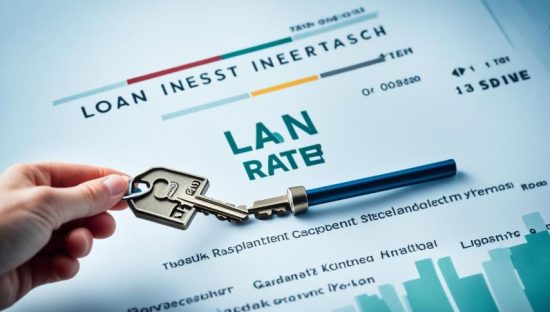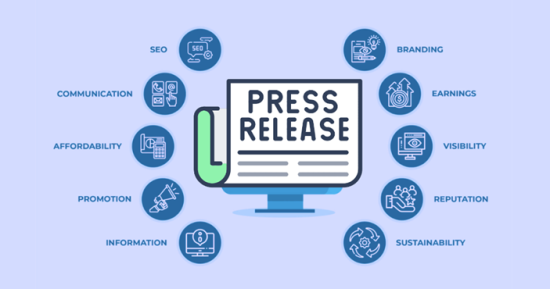
Have you ever wondered why some student loans require a cosigner? What is the purpose of having someone else sign the loan with you? And why is it so hard to find a willing cosigner? If these questions have crossed your mind, you’re not alone.
When it comes to certain student loans, having a cosigner can make all the difference in getting approved and securing more favorable loan terms. But why is this the case?
Let’s explore the reasons why would you need a cosigner for certain student loans? Whether you’re a student with limited credit history or an international student studying in the US, understanding the role of a cosigner can help you navigate the loan application process with confidence.
Understanding the Role of a Cosigner in Student Loan Applications
When applying for a student loan, it’s essential to understand the role of a cosigner and how they can impact your loan application. A cosigner is someone who guarantees the loan alongside the borrower, providing additional assurance to the lender that the loan will be repaid.
What Is a Cosigner?
A cosigner is usually required when the borrower’s credit history or income is insufficient to meet the lender’s requirements. They share equal responsibility for the loan and are legally obligated to make payments if the borrower fails to do so. By cosigning the loan, they vouch for the borrower’s creditworthiness and ability to repay the loan.
The Creditworthiness Factor
Both the borrower’s and the cosigner’s creditworthiness are considered during the loan application process. The lender assesses their credit history and credit score to determine the risk level associated with the loan. If the borrower has limited credit history or a lower credit score, having a cosigner with a strong credit history and score can help overcome these limitations and increase the chances of loan approval.
Shared Responsibility of a Loan
One crucial aspect of having a cosigner is the shared responsibility for the loan. Both the borrower and the cosigner are legally obligated to make payments. If the borrower fails to repay the loan, the cosigner will be held responsible for the debt. This shared responsibility provides an added layer of security for the lender, reducing the risk associated with the loan.
By understanding the role of a cosigner in student loan applications, you can make informed decisions regarding your loan options. It’s important to carefully consider the creditworthiness factor and the shared responsibilities before deciding to involve a cosigner in your loan application.
Federal Vs. Private Student Loans: Do You Need a Cosigner?
When it comes to financing your education, there are two main types of student loans: federal and private. Understanding the differences between these two options is crucial, especially when it comes to the role of a cosigner.
Independent Borrowing with Federal Student Loans
With federal student loans, you have the opportunity to borrow money without needing a cosigner in most cases. Federal loans, such as Direct Subsidized Loans and Direct Unsubsidized Loans, are available to all eligible students, regardless of credit history or income. These loans are backed by the federal government and come with fixed interest rates and flexible repayment options.
When Do Private Student Loans Require a Cosigner?
On the other hand, private student loans, which are offered by banks, credit unions, and online lenders, often require a cosigner if the borrower’s credit history or income does not meet the lender’s criteria. These loans are not backed by the government and have varying interest rates and repayment terms.
International students studying in the US may also need a cosigner to qualify for private student loans. Since these students may not have an established credit history in the country, having a cosigner can help increase their chances of loan approval.
It’s essential to carefully consider the type of loan that best suits your needs and financial situation. Federal student loans offer independent borrowing options and more borrower-friendly terms, while private student loans may require a cosigner to meet the lender’s requirements. Understanding the specific requirements for each type of loan is crucial before making any borrowing decisions.
Why Would You Need a Cosigner for Certain Student Loans?

In certain situations, obtaining a student loan may require a cosigner. Let’s explore the reasons why a cosigner might be needed for certain student loans, the role of banks in asking for a cosigner, the potential risks involved, and the challenges of finding a willing cosigner.
There are several factors that contribute to the need for a cosigner. Limited credit history and low credit scores can make it difficult for a borrower to qualify for a loan on their own. Lenders often require a cosigner to provide additional assurance that the loan will be repaid. Similarly, income limitations can also be a factor, as lenders want to ensure that the borrower has the means to make timely payments.
For international students studying in the United States, obtaining a student loan without a cosigner can be challenging. Many lenders require a cosigner for international students, as they may not have established credit history or income in the US. Having a cosigner can increase the chances of loan approval for international students.
Banks ask for a cosigner as a way to mitigate their risks. By having a cosigner with a good credit history and score, lenders can have more confidence in the borrower’s ability to repay the loan. A cosigner provides an additional layer of assurance, reducing the potential for default. It’s important to note that being a cosigner comes with its own set of risks. The cosigner becomes legally responsible for repaying the loan if the borrower fails to do so. This can negatively impact the cosigner’s credit score and financial situation.
One of the challenges of finding a willing cosigner is the trust and commitment required. Cosigning a loan is a serious responsibility, and not everyone is willing to take on that risk. Additionally, individuals may have their own financial obligations or concerns that prevent them from cosigning a loan. It can take time and effort to find a cosigner who is both willing and able to support the loan application.
Overall, the need for a cosigner arises when the borrower’s credit history, credit score, income, or international student status create a level of risk that lenders are not willing to take on. Banks ask for a cosigner to reduce their own risk and ensure a higher likelihood of loan repayment. However, cosigners should carefully consider the potential implications and risks before agreeing to cosign a loan. Finding a willing cosigner can be challenging due to the responsibility and commitment involved.
The Impact of a Cosigner on Your Loan Terms

Having a cosigner for a student loan can have a significant impact on the loan terms. One of the key benefits of having a cosigner is the potential to secure better interest rates. If the cosigner has a strong credit history and score, it can offset the borrower’s limitations and result in a lower interest rate.
Additionally, having a cosigner can greatly improve the chances of loan approval, especially when the borrower has limited credit history or income. The cosigner’s creditworthiness provides reassurance to the lender and increases the overall credibility of the loan application.
Criteria for Becoming a Cosigner for Student Loans
Credit Score Requirements
To become a cosigner for a student loan, one of the primary criteria is meeting the credit score requirements set by the lender. A good credit score is essential for cosigners as it demonstrates their creditworthiness and assures the lender of their ability to repay the loan if the borrower is unable to do so. The specific credit score requirements may vary depending on the lender and the type of loan being applied for. It’s important to review the lender’s guidelines and ensure that your credit score meets the necessary threshold.
The Importance of Stable Income
In addition to credit score requirements, having a stable income is also crucial for individuals considering becoming a cosigner for a student loan. Lenders want to ensure that cosigners have the financial capacity to make loan payments in case the borrower is unable to fulfill their obligations. A stable income provides the lender with confidence that the cosigner will be able to meet these financial responsibilities. Before becoming a cosigner, it’s essential to assess your own financial stability and ensure that you are capable of taking on this responsibility.
Understanding the Legal Obligations
Before agreeing to become a cosigner, it’s important for both the borrower and the cosigner to have a clear understanding of the legal obligations involved. As a cosigner, you share equal responsibility for the repayment of the loan. This means that if the borrower fails to make payments, you will be held liable for the remaining balance. It’s crucial to thoroughly read and comprehend the terms of the loan agreement, including the consequences for default and the potential impact on your credit score. Understanding these legal obligations will help you make an informed decision and avoid any unexpected financial repercussions.
The Process of Releasing a Cosigner from a Student Loan
To release a cosigner from a student loan, you must meet certain requirements set by the lender. This process allows you to take full ownership of the loan and relieves the cosigner of their responsibility.
Meeting Lender’s Requirements for Release
Every lender may have different criteria for cosigner release. Typically, you will need to demonstrate financial stability, make a certain number of on-time payments, and meet specific credit requirements. It is essential to review your loan agreement or contact your lender to understand their specific conditions for releasing a cosigner.”
The Benefits of Cosigner Release
Releasing a cosigner from your student loan can provide significant benefits. First and foremost, it relieves the cosigner from their legal obligation to repay the loan. This can be a relief for both parties involved. Additionally, cosigner release allows you to take full ownership of the loan, which can improve your financial independence and credit standing. By maintaining responsible repayment habits, you can build a positive credit history and gain access to future credit opportunities.
Alternatives to Cosigning: How to Get a Loan on Your Own

If you’re unable to find a cosigner or prefer to secure a loan on your own, there are alternatives to consider. One alternative is to focus on building your credit score, as a higher credit score can improve your chances of loan approval. This can be achieved through responsible credit card use, timely bill payments, and managing your financial obligations effectively.
Another alternative is to explore federal student loan options. Federal loans do not require a cosigner, allowing you to obtain a loan independently. These loans have more favorable repayment terms and borrower protections compared to private student loans. To explore federal loan options, you can start by completing the Free Application for Federal Student Aid (FAFSA), which determines your eligibility for various federal aid programs.
Responsibilities and Risks of Cosigning a Student Loan
When you agree to cosign a student loan, you take on significant responsibilities and expose yourself to potential risks. As a cosigner, you share legal and financial obligations for the loan alongside the borrower. This means that if the borrower fails to make the required loan payments, you become responsible for them.
The legal implications of cosigning a student loan can be profound. By cosigning, you essentially become equally liable for the debt and are legally bound to repay it if the borrower defaults. This shared responsibility can have significant implications for your creditworthiness and financial stability.
Legal and Financial Implications for the Cosigner
One of the key legal implications of cosigning a student loan is that any late or missed payments can negatively affect your credit score. Responsibilities and risks of cosigning a student loan If the borrower defaults on the loan, not only will their credit take a hit, but yours will too. This can make it more difficult for you to secure future credit for yourself, such as a mortgage or car loan.
Furthermore, if the borrower fails to make the loan payments, legal and financial implications for cosigners, you will be held responsible for repaying the loan, including any accumulated interest and fees. This can put a significant strain on your finances and potentially lead to financial difficulties or even bankruptcy if you are unable to sustain the additional financial burden.
It’s important to note that consequences of default for borrower and cosigner cosigning a loan can also impact your relationship with the borrower. If they default, you may be faced with strained relationships, as the financial consequences can be stressful and may lead to disputes.
The Consequences of Default for Borrower and Cosigner
If the borrower defaults on the student loan, both the borrower and the cosigner face serious consequences. These consequences can include collection actions by the lender, such as wage garnishment or legal action to recover the outstanding debt.
Defaulting on a student loan can also have long-term effects on credit scores for both the borrower and the cosigner. This can make it challenging to secure future credit or loans, consequences of default for borrower and cosigner. It can negatively impact their financial stability for years to come.
In summary, cosigning a student loan carries significant responsibilities and risks for the cosigner. You become legally and financially liable for the loan, with potential consequences for your creditworthiness and financial stability. It’s crucial to carefully consider these responsibilities and risks before agreeing to cosign a student loan.
Potential Benefits of Having a Cosigner on Student Loans

While cosigning a student loan comes with certain risks and obligations, there are potential benefits to consider as well. Having a cosigner can significantly increase your chances of getting approved for a loan, especially if you have limited credit history or a low credit score. Lenders often view a cosigner’s strong creditworthiness as a positive indicator of your ability to repay the loan, which can pave the way for better loan terms and lower interest rates.
Moreover, having a cosigner on your student loan can provide you with an opportunity to build or improve your credit history. By making timely payments, you can demonstrate financial responsibility and boost your credit score. This can be particularly beneficial for younger borrowers or those with little credit activity.
Additionally, having a cosigner can bring peace of mind, knowing that you have someone supporting you and sharing the responsibility of the loan. If you are an international student or have limited income, a cosigner’s involvement can provide the lender with further assurance and increase your chances of loan approval. It’s important to carefully consider the potential benefits along with the risks before deciding to have a cosigner for your student loan.
FAQs on Why Would You Need a Cosigner for Certain Student Loans
Why would you need a cosigner for certain student loans if you have no credit history?
If you have no credit history, lenders may require a cosigner with a strong credit profile to reduce their risk and help you qualify for the loan.
Why would you need a cosigner for certain student loans if your credit score is low?
A low credit score is challenging to get approved for student loans, so a cosigner with good credit can help secure the loan and potentially get better interest rates.
Why would you need a cosigner for certain student loans if you have insufficient income?
Lenders often require proof of sufficient income to ensure repayment of the loan, and a cosigner can provide the necessary income stability if you do not meet the criteria.
Why would you need a cosigner for certain student loans from private lenders?
Private lenders typically have stricter credit and income requirements than federal loans, so a cosigner can help meet these requirements and improve your chances of approval.
Why would you need a cosigner for certain student loans to get better loan terms?
Having a cosigner with a solid financial background can provide you secure better loan terms, like lower interest rates and higher loan amounts, making the loan more affordable in the long run.








